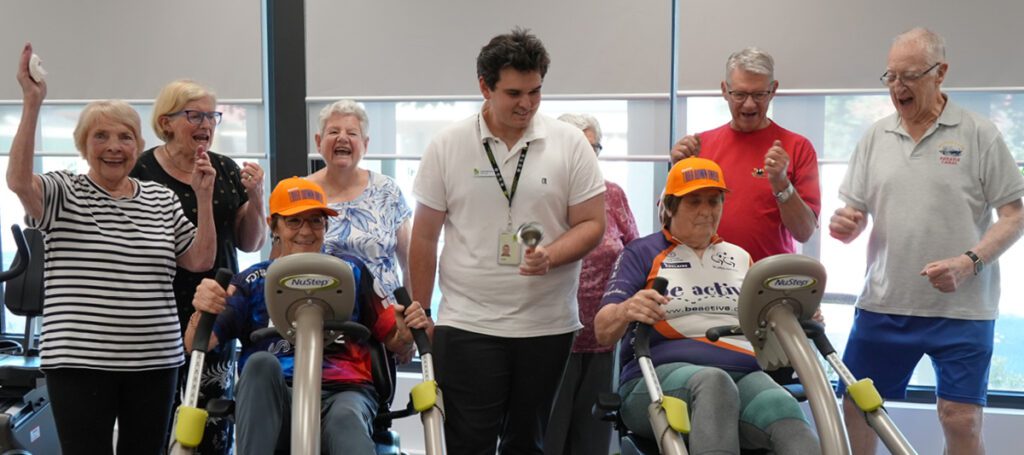What is yoga?
Yoga is a form of gentle exercise that is not religious but promotes spirituality, encouraging people to learn and develop inner peace and nurture their ‘mind, body and spirit’.
This ancient practice, founded in India’s Himalayas region, increased in popularity in Western culture during the 1960s-70s and continues to grow in popularity across all age groups today.
Yoga is usually practiced in a quiet and calming environment, often with soft music or lighting. People in a class are encouraged to focus on their breathing as they follow the teachers’ instructions.
The teacher demonstrates and explains set movements and ‘postures’ that move the body in a certain position, requiring strength, concentration and balance. But don’t worry, you do not need to be able to twist yourself into knots, classes and movements can be tailored to suit individual abilities and will adapt as you improve.
Yoga unwinds the spring by stretching the body in a safe and systematic way. This begins with the major muscles and gradually attends to the smaller muscles as the larger ones become more supple. The result is an increase in range of motion for the limbs, improved posture and a reduction in stiffness and pain. While stretching the muscles, strength is also developed, providing more support for the joints and improvement in balance and mobility.
People feel the benefits of yoga immediately and often report that they can move more freely and feel ‘lighter’ and ‘calmer’.
Health benefits of yoga
According to Yoga Australia, there is a growing body of evidence to demonstrate that yoga can be a useful and cost-effective tool in the management and treatment of a wide range of conditions. There are proven health benefits of yoga to both your mental and physical health. Let’s find out.
Calming effect and reduced anxiety
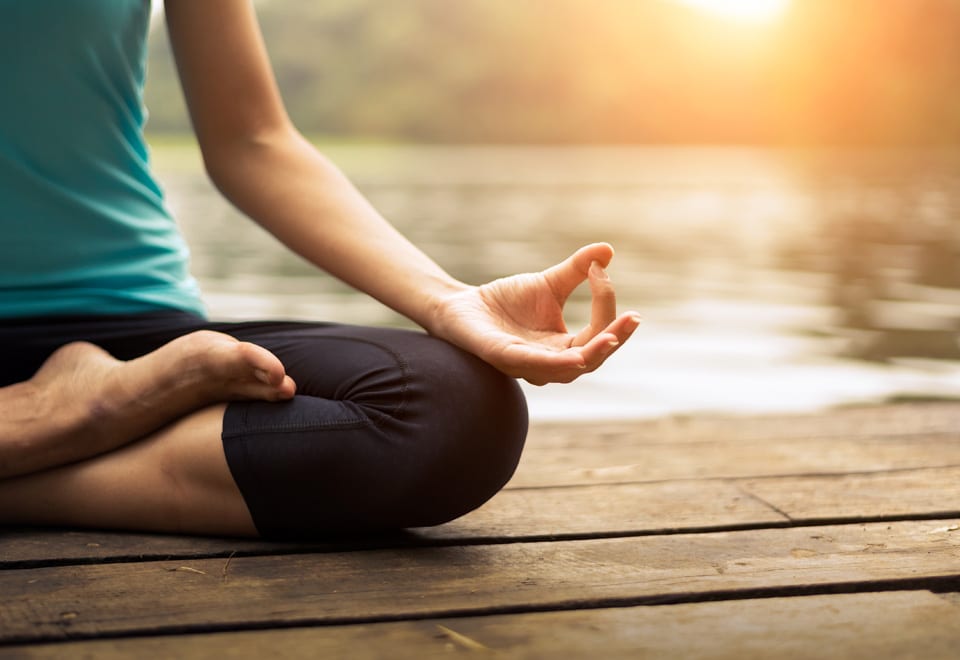
Yoga has been proven to help reduce anxiety and as a method to cope with feelings of anxiety. According to research, yoga can be considered as a complementary therapy or an alternative method for medical therapy in treatment of anxiety disorders.
Yoga practice that involves meditation and breathwork can help improve your mental well-being and promote emotional health. There is growing evidence that meditation and mindfulness exercises may help manage symptoms and conditions like anxiety, stress, chronic pain, depression, chronic pain, sleep problems and so on. Remember yoga and meditation can’t replace traditional medical treatment but are helpful tools to assist with other treatments. Always consult with your healthcare provider about the benefits of incorporating yoga into your treatment.
Improved cardiovascular health

Studies show that yoga may help improve cardiovascular health or heart health and minimize the risk of heart diseases. High blood pressure is one of the major causes of heart problems and yoga can be used as a tool to help lower blood pressure. Practicing yoga may help lower blood cholesterol and blood glucose levels as well as heart rate. A study has shown that slow-paced yoga classes twice a week helped reduce the frequency of atrial fibrillation episodes in patients with the condition.
Increased joint mobility
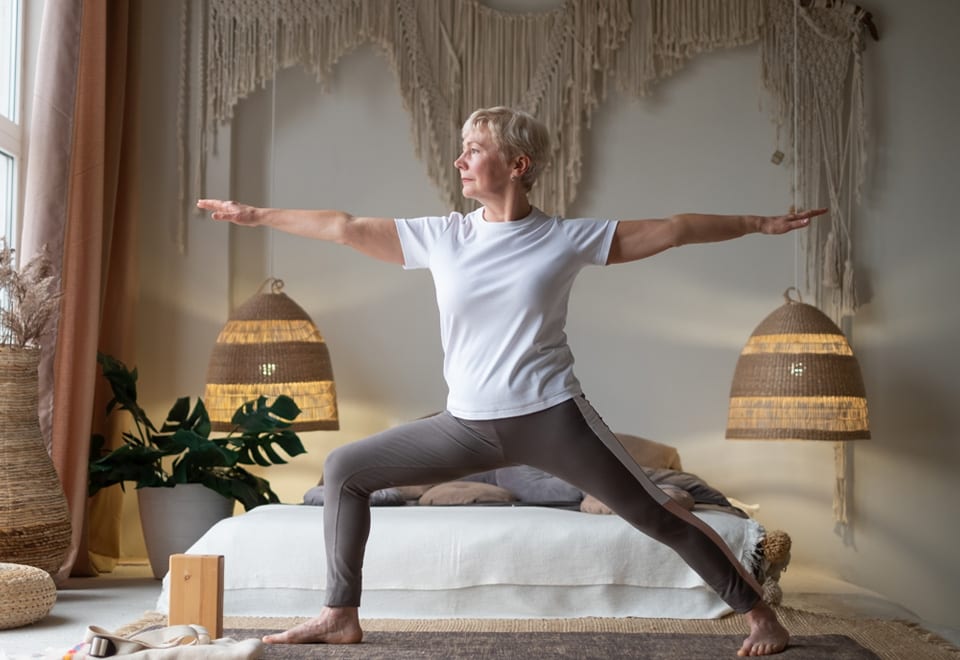
Beside improving mental health and heart health, yoga can help reduce tension and improve joint flexibility. People with arthritis can benefit greatly from attending regular yoga classes as yoga helps build muscle strength and improve balance.
A study by Dr. Kolasinski on the effects of yoga on people with knee osteoarthritis (OA) has found that people who take 90-minute modified Iyengar yoga classes once a week for eight weeks reported reductions in pain and improvements in joint stiffness. Another study conducted at the University of Pennsylvania found that yoga could provide relief for people with hand osteoarthritis and improve finger range of motion.
Improved respiratory efficiency
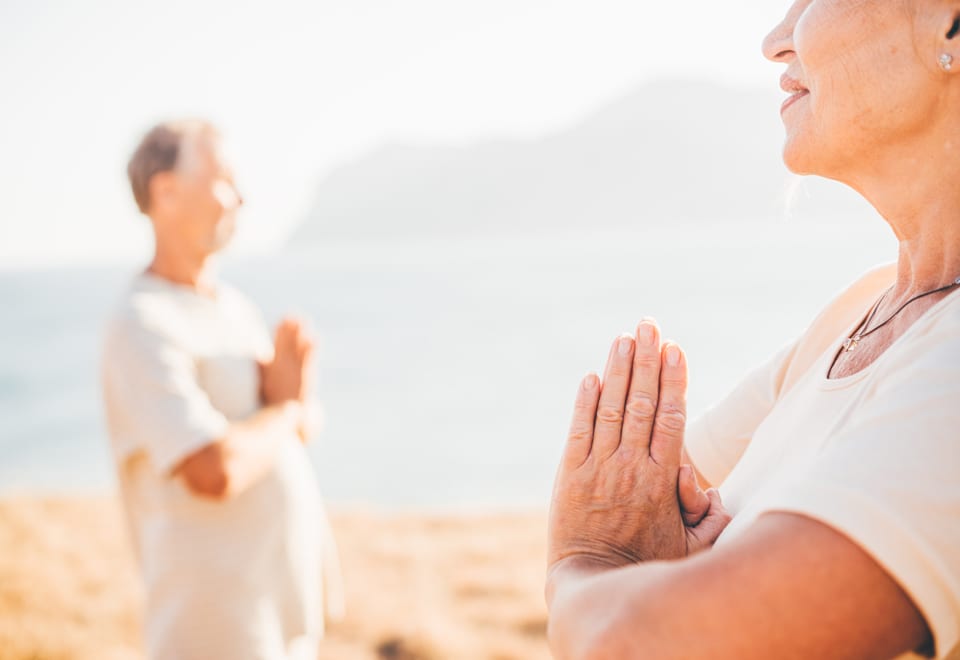
The respiratory system is one of the most important systems of the body since it connects the whole body and supplies oxygen throughout to every single cell. Yoga practice that involves breath work or known as ‘pranayama’ breathing exercise has proven to help improve respiratory system. Regular yoga breathing exercises can also help sort out problems in the respiratory system such as asthma, hay fever, shortness of breaths and sinus problems. Clinical study has found that yoga exercise amongst patients with asthma helped reduce the number of day and night attacks, reduction in use of drug and significant improvement in the peak expiratory flow rate.
Enhanced memory and concentration

Yoga does not only help strengthen the body; it also helps strengthen the mind. There is growing evidence over the years that emphasises the positive effects of yoga practice on connection between physical activity and improved brain health. A 2016 study by the University of California compared yoga and meditation with those from memory-training exercises such as crosswords, puzzles, and brain training. Study participants were divided into two groups: one practicing yoga and meditation while the other group practicing memory-training exercises. The result found that both groups saw similar improvements in verbal memory. However, those who practiced yoga saw some additional benefits such as improvement in visual-spatial memory, depth perception, improved moods and communications, improved ability to focus and multitasking.
It’s time to take up yoga
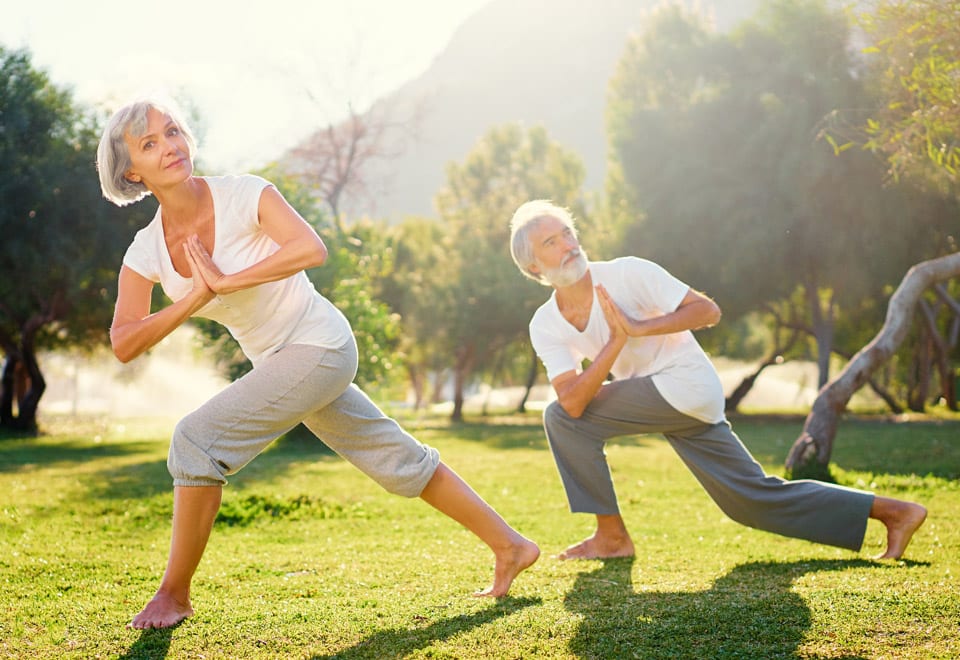
Yoga is for everybody. Some people may say “I’m not that flexible so I won’t be doing yoga.” That is not true. The term yoga in Sanskrit means ‘to yoke’ which means to connect. Yoga is a holistic practice to connect the body, mind, and spirit. This ancient practice has proven to offer great health benefits over decades. Yoga is for everybody no matter what age you are. Yoga is more than just the physical practice of poses or known as asanas. Yoga pratice which involves meditation and breathing exercises that can help improve overall health and well-being. Yoga offers many modifications and variations for everybody with props such as blocks, straps, bolsters to help ease you into the practice. Therefore, yoga can be practiced even if you are not flexible. Having a yoga instructor that understands your previous injuries, health issues and your limitations can help personalise the experience to your own body, your own ability.
ACH Group offers a wide range of health and wellbeing services include exercise groups and wellness groups. Our specialists will work with you to develop a personalised plan that helps keep you active and living life independently. Stay informed and up to date with our healthy ageing and well-being tips by following us on social media and browsing our blog.



